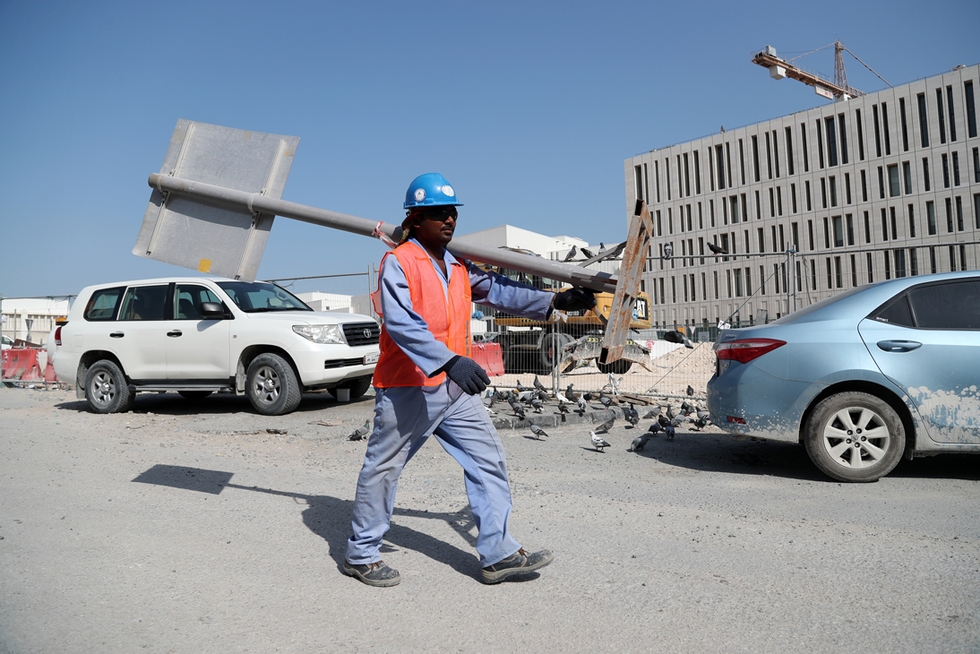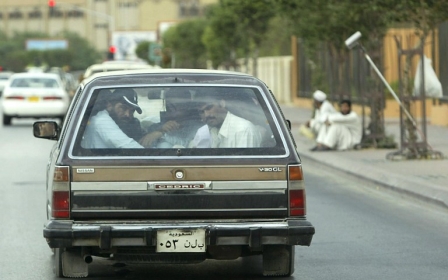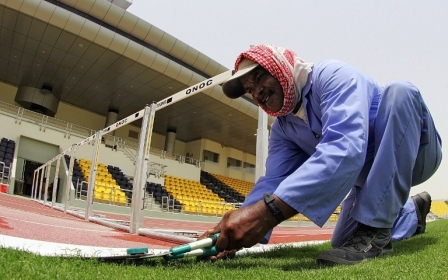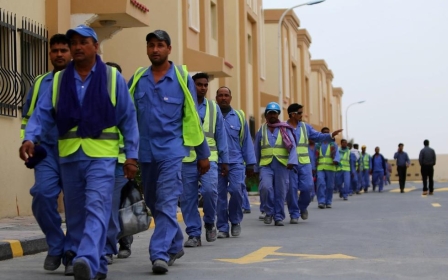Qatar must do more to protect migrant workers from deadly heat: HRW

Qatar must do more to protect construction workers from extreme heat, which often reaches levels that are potentially fatal, Human Rights Watch said on Wednesday.
HRW and other rights campaigners are frequent critics of Qatar's treatment of migrant labourers whose working conditions have received additional scrutiny as the country prepares to host the 2022 World Cup.
The group said existing regulations only set limits on outdoor work during the period 15 June to 31 August, and then only from 11:30 am to 3 pm. HRW said that lethal levels of heat often occur outside those hours.
"Climate data shows that weather conditions in Qatar outside those hours and dates frequently reach levels that can result in potentially fatal heat-related illnesses in the absence of appropriate rest," it said.
HRW called on authorities also to investigate the causes of migrant worker deaths and publish data on such incidents. In 2013, health authorities reported 520 deaths of workers from Bangladesh, India, and Nepal.
“Enforcing appropriate restrictions on outdoor work and regularly investigating and publicising information about worker deaths is essential to protect the health and lives of construction workers in Qatar,” said HRW Middle East director Sarah Leah Whitson.
“Limiting work hours to safe temperatures – not set by a clock or calendar – is well within the capacity of the Qatari government and will help protect hundreds of thousands of workers.”
Like other wealthy Gulf Arab states, Qatar relies on vast numbers of migrant workers, mostly from the Philippines, South Asia and Africa. About two million migrant workers live in Qatar, outnumbering the local workforce almost 20 to one. About 800,000 operate in the construction sector.
In 2013, health authorities reported 520 deaths of workers from Bangladesh, India, and Nepal
Unions and labour protests are banned and authorities penalise dissent with jail or deportation.
The Qatari government's Communications Office said: "Qatar is committed to its labour reform programme and is constantly reviewing its policies to ensure that migrant workers receive the necessary on-site protections.
Sheikh Saif al-Thani, head of the Communications Office, said that Qatar was the first Gulf state to implement restrictions on summer working hours and the only country in the region to shut down companies found to be operating in violation of regulations.
"We continue to coordinate closely with the International Labour Organisation (ILO) and international NGOs to implement reforms that will improve the health, safety and rights of migrant workers," said al-Thani.
New MEE newsletter: Jerusalem Dispatch
Sign up to get the latest insights and analysis on Israel-Palestine, alongside Turkey Unpacked and other MEE newsletters
Middle East Eye delivers independent and unrivalled coverage and analysis of the Middle East, North Africa and beyond. To learn more about republishing this content and the associated fees, please fill out this form. More about MEE can be found here.




